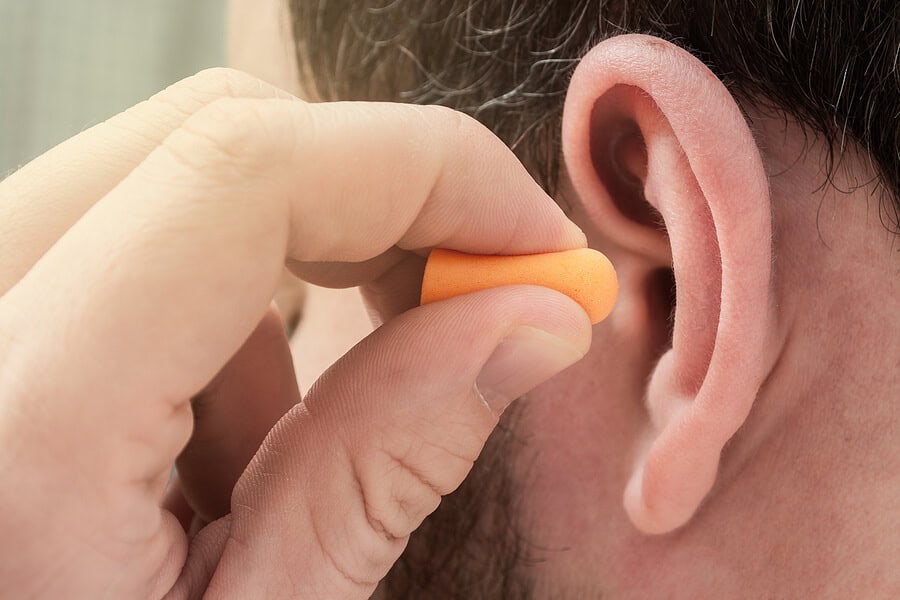
- A Guide to Different Hearing Aid Styles - May 6, 2025
- What is the Lifespan of Hearing Aid Batteries? - April 27, 2025
- Understanding the Different Types of Assistive Listening Technology - April 15, 2025
Summertime is filled with fun and exciting activities, but it’s important that we don’t overlook protecting our hearing during these vibrant months. From concerts and fireworks to outdoor sports and water activities, the summer season can expose our ears to potentially damaging noise levels.
1. Wear Hearing Protection
Whether attending outdoor concerts, festivals, or sporting events, always wear hearing protection. Invest in high-quality, properly fitting earplugs or earmuffs to reduce excessive noise exposure and prevent noise-induced hearing loss. Consider carrying a pair of earplugs with you at all times, so you’re prepared to protect your hearing whenever necessary.
2. Limit Exposure to Loud Noise
Be mindful of the duration and intensity of your exposure to loud sounds. If possible, take breaks from noisy environments to give your ears a rest. Prolonged exposure to loud noise can lead to irreversible hearing damage. Opt for quieter areas when socializing or participating in activities away from excessive noise sources.
3. Maintain a Safe Listening Volume
When enjoying music through headphones or portable speakers, maintain a safe listening volume. As a general rule, keep the volume below 60% of the maximum level and take regular breaks. Remember, prolonged exposure to high volume levels can harm your hearing. Use noise-cancelling headphones to block out external noise, allowing you to enjoy your music at lower, safer volumes.
4. Utilize Sound-Reducing Tools
Consider using sound-reducing tools to protect your hearing during noisy activities. For example, foam or silicone earplugs can be used while mowing the lawn or operating power tools. Noise-canceling headphones are also effective in reducing background noise during activities such as air travel or attending loud events.
5. Keep Your Distance from The Sources of Noise
When participating in activities like fireworks displays or motorsports, be mindful of your proximity to the source of loud noise. Try to maintain a safe distance to minimize the impact on your hearing. The farther you are from the source of the loud sound, the less potential damage it can cause.
6. Educate Yourself on Decibel Levels
Learn about the decibel levels associated with various common summer activities. This knowledge will help you assess the potential risk to your hearing and take appropriate precautions. Understanding what noise levels can cause damage can guide you in making informed decisions about protecting your ears.
7. Stay Hydrated
Staying hydrated is not only important for your overall health but can also benefit your hearing. Proper hydration ensures that the delicate structures in your ears receive the nutrients then need, promoting better overall hearing. Drink plenty of water, especially when engaging in outdoor activities in hot weather.
8. Have Regular Hearing Check-ups
Schedule regular hearing check-ups with a qualified hearing health specialist. These professionals can assess your hearing health and detect any potential issues early on. Regular check-ups are particularly relevant if you engage in activities that may put your hearing at risk. Early detection and intervention can help prevent further damage and preserve your hearing ability.
9. Protect Your Ears During Water Activities
During water activities, protect your ears from water-related infections and potential damage. Use custom-made swim plugs or earplugs designed specifically for water sports to prevent water from entering your ear canal. Then dry your ears completely after water exposure to prevent moisture-related infections such as swimmer’s ear.
10. Teach Children about Hearing Protection
Educate children about the importance of hearing protection from an early age. Instill good hearing habits by teaching them to wear hearing protection during loud activities and to limit exposure to excessive noise. By cultivating these habits from a young age, you can set your children on a path to lifelong hearing health.
Visit Us for More Summer Tips
As you dive into the joys of summer, remember to prioritize your hearing health by implementing these 10 best practices. From wearing hearing protection to limiting exposure to loud noise, these practices can help safeguard your ears during summer activities. Visit us for more support and find out how you can protect your hearing.
